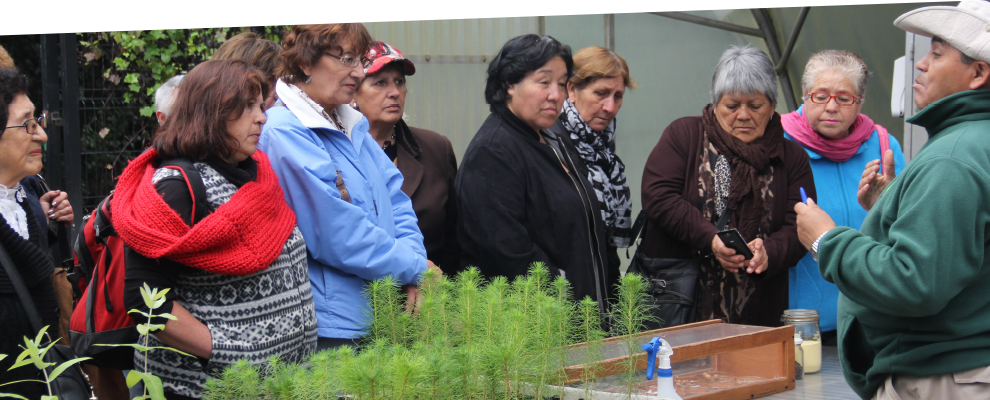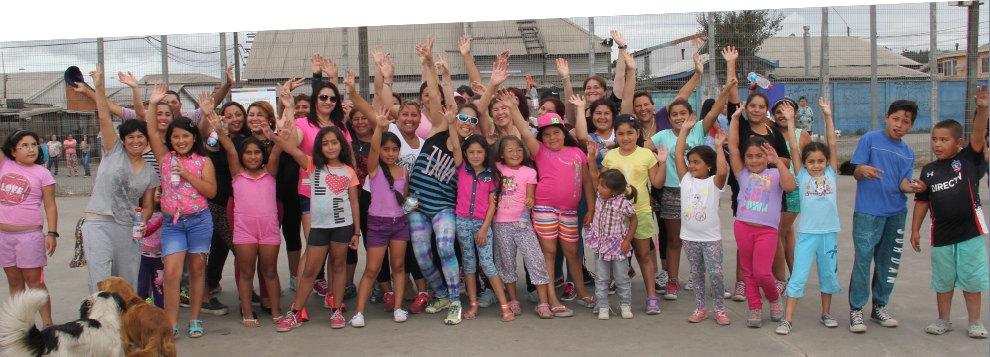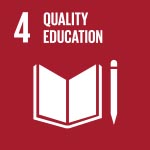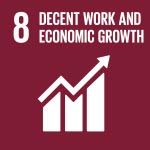Sustainable growth is a challenge that demands ongoing integration and trust-building efforts from the society, authorities and companies. Based on this certainty, CAP blends into the communities, prioritizing direct relationships and the construction of public-private partnerships.
Communities have become an increasingly relevant factor in a company’s success. At present, their participation is prescribed by law as a prerequisite for the approval of large projects and their perception will determine whether an organization will or will not be granted the “social license” necessary to operate. In this scenario, most firms have not only bolstered their communications and dialogue channels with communities but have also decided to build permanent integration bridges to ensure problems are effectively solved and to potentiate local development and the community’s well-being.
From the very beginning, CAP deems community integration to be inherent to all its activities. This commitment is contained in its Sustainability Policy and is reflected on the fact that, 92% of the Group workforce and 46% of its suppliers are based on the proximities of the company work sites.
And it is based on the strategic role that community relations have taken on in the last years that CAP has incorporated community management as one of the five factors critical for the company’s success, besides innovation, diversification, value creation in its affiliates and coordinated work among the different areas.

At local level, CAP keeps relationships with community groups, non-governmental organizations, local and regional authorities, other companies and representatives from indigenous peoples.
Dialogues with stakeholders and the identification of their needs and expectations are conducted through specific and wide-ranging channels.
As for social organizations, apart from applying perception surveys, the Group promotes direct dialogue opportunities, such as joint discussions tables and community outreach centers.
As part of this line of action, CAP Minería has set up liaison offices to interact with Huasco and Caldera communities and has appointed a team especially dedicated to convey the company’s community actions.
In 2017, the company applied the ESG Survey , for the first time among its communities of influence with the purpose of measuring how local actors perceive its environmental, social and corporate governance management. 247 representatives of the communities existing near CAP Minería and CAP Acero operations responded the survey. The results indicated that aspects such as “Environmental culture”, “Communications” and “Anticorruption” should be prioritized.
On the other hand, by the end of 2017, the Group launched a new Whistleblowing and Consultation Hotline to receive ethics and crime prevention grievances. This hotline is available for all stakeholders on a 24/7 basis in the corporate website and can be accessed any time, from anywhere in the world.
During the period, the main community relations breakthroughs were led by CAP Minería and CAP Acero.
CAP Minería: In 2017, a social-innovation oriented model started to be applied in the communities. This model advocates the building of community relationships based on collaboration and co-creation to thus generate a virtuous, long-term relationship with favorable social impact and added value.
CAP Minería will apply this scope to a community initiative designed on the basis of a social needs survey conducted in the Atacama and Coquimbo regions, which revealed job generation to be the most pressing social need, together with access to health care, in both regions. According to the above, the company will place its focus on:
-
The creation of self-employment and private undertakings.
-
The tutoring, advising and connection with the entrepreneurial ecosystem.
-
In Caldera, these efforts will follow the municipal strategic alignments aimed to turn the city into a tourism hub. Thus, tourism management will have to be reinforced with quality services and local business undertakings will have to be promoted in order to diversify the offer of goods and services.
-
As for artisanal fishing, a long-term vision should be developed with the aid of training and diversified productive activities.
In 2017, in an effort to deepen community relations, the use of Facebook and Twitter, internal newsletters and the magazine Visión XXI were enhanced with the objective of expanding the reach of the information disclosed by the company to the community and thus disseminate information on its activities to larger audiences and increase feedback from the participants.
CAP Acero: The relations community efforts deployed by this company form part of the activities promoted by the Libertad Gaete Tripartite Commission through the actions contained in the “CAP Acero Good Neighbor’’ program. According to these guidelines, the company is permanently organizing events attended by a large number of neighbors, such as recreational evenings, support of project submittals, work with environmental committees and art-related programs intended to improve life quality and encourage the practice of sports and healthy life. In 2017, and as one of its main milestones, the company was able to successfully approach the five neighborhood boards that operate in Talcahuano hillsides directly overlooking the steelworks.
Moreover, the company is constantly surveying the needs and expectations from nearby communities through different engagement and communications means.
In 2017, and with the purpose of improving and better targeting its community management efforts in the coming years, the firm complemented the feedback gathered through the above-mentioned dialogue means, with the results obtained from a social impact study conducted at the Libertad and Gaete areas. In matters of training opportunities, this diagnosis will also draw on the conclusions from the “Labor Demand Mapping Process” completed by the National Service for Training and Employment (Sence) for the district.
In the last years, the permanent bond that connects the company with the communities has become a problem-solving guarantee when controversies arise between the parties.
In 2017, CAP Acero endorsed the governmental-municipal project “I Love my Neighborhood. Under this initiative, an intervention was performed in the bicentenary area of Talcahuano, where a small square will be inaugurated with a sculpture to recognize the social contribution made by this company.
During 2017 CAP Acero continued to take part, also, in the “Table for Companies, an initiative where, together with other seven companies of the region, pursues joint community projects and actions. Likewise, the company endorsed the idea that local groups can apply for contestable projects offered by the regional government and SERVIU for household improvement.
CAP Minería, in turn, has played an active role, in the last couple of years, in Caldera public-private table for artisanal fishing. This joint work initiative is promoted by the Atacama regional government and is integrated by different public services, private firms and fishing-related companies from the commune. They are aimed to drive dialogue mechanisms that generate collaboration actions capable of furthering the sustainable development of fishing activities.
The Caldera operation maintains an agreement with the Municipality for the execution of funds for the productive development of the community (Fondeproc) while, in Huasco, CAP Minería collaborates with the municipal authority in the promotion of recycling and the upgrade of the local recycling center (Punto Limpio).

OPINION
PIECE
Carlos Pineda W.
“Shared Value, a Present-Day
Strategy to Sustain
Future Growth”
A large number of studies seek to analyze and understand the importance of shared value as a key strategy to ensure the sustainability of modern-day companies.
The first manifestations of corporate social responsibility can be traced back to the XIX century, through practices mainly associated to assistencialism or to a series of solutions to problems that today might well be considered physiological needs (Maslow).
By the 1950s, organizations started to consider community relationships as part of their business lines, bonds are formed based on the effects of the industry on the environment and works that benefit the whole community are materialized.
Today, after 60 years, the concept of Social Responsibility has evolved into shared value that puts forward a new model where social progress is closely related to the economic performance achieved by an organization that, in turn, requires the company to be in constant reformulation; that is, challenge itself and think beyond its own nature.
Thus, shared value is a high-impact corporate strategy, as defined by Michael E. Porter and Mark R. Kramer -professors in Harvard University and important advocates of this approach- who mention “the policies and operational practices that improve competitiveness in a company while simultaneously improving the social and economic conditions of the communities where it operates” (The Creation of Shared Value, 2011).
Our society is experiencing important transformations, which, among many issues, has led communities to express their desire to participate in the decision-making process and discuss the future with the neighboring companies.
Nowadays, organizations are in the process of redefining their community engagement model, incorporating permanent interaction as the basis on which different processes capable of generating tangible benefits and effectively strengthening trust between the parties will be put together.
Under this scenario, no doubt that one of the major challenges faced by the mining industry towards the creation of shared value is to build more and better dialogue with these stakeholders. This is the only way in which the required responsibility will consolidate and sink into people's perception, going from an economic agent to a social actor immersed into the community development.
Shared value is not a short-term effort but it must be taken as a present-day strategy to sustain future growth. For this reason, placing communities at the core of the entrepreneurial management and promote good relationships with all stakeholders is of major importance.
At CAP Minería, we know that mining is a resource-intensive industry, which is why the growth strategy must strive for harmonious compatibility between the business’s economic development and comprehensive policies to create social value and an impeccable environmental performance.
In that sense, we believe that the main social investment should provide the communities with skills and competencies to undertake and develop new businesses, securing value opportunities and generating positive impacts, including local employment, education and economic growth in the area where we operate.
The above challenges are an integral part of the strategic planning of every company since it is today that strategies are built to create tomorrow’s value.

Carlos Pineda W.
Chief Executive Officer (CEO), CAP Minería Compañía Minera del Pacifico S.A.
In addition to creating quality jobs and wealth in its areas of operation, the CAP Group contributes to community thriving through business undertakings programs and the creation of new productive capabilities.
Since 2017, the CAP Group companies have been applying a social innovation perspective to their community investment and development programs mainly aimed at the generation of long-term value and sustainable local growth. Moreover, this work inscribes itself in the context of a social investment strategy founded on four action lines: education and employability; productive development; sports, recreation and culture; and environmental advancement and protection.
Thus, in 2017, US$ 2,777 thousand dollars were allocated by the company to financing social initiatives.
| 2015 | 2016 | 2017 | |
| TOTAL | 2,849 | 2,473 | 2,777 |

Collaboration with educational entities
Since its establishment, the CAP Group has been an active contributor to the development of education in its areas of influence. This commitment is mainly reflected on the enhancement of children day-care facilities and schools and on the creation of new internship positions for students with technical and professional training.
The company has marked important milestones in this area in the country, such as the creation of the Ambrosio O’Higgins school in Vallenar by CAP Minería, at present recognized for its outstanding academic performance and strong humanist education.
The CAP contest for Students of Architecture developed to promote the creative use of steel in architecture and construction is another instance of this initiative. In 2017, the first prize was awarded to a team from Diego Portales University who also came out first in the 10th edition of Alacero International Competition, who worked around the idea of children nursery and day-care facilities.
It should be pointed out also that, in 2017, CAP Minería entered into a collaboration agreement with INACAP, the technological university of Chile, through which the parties agreed, among others, to expedite the company’s search and recruitment process among INACAP students. On the other hand, the agreement requires the company to collaborate in internships or professional trainings for INACAP students and to allocate job positions at their work sites to students graduated from that institution. Under this agreement, INACAP will include a course on Mining Environmental Management in the Risk Prevention and Environmental Engineering curriculum to be taught by CAP Minería.
Training in business undertakings and employability
Additionally, CAP also contributes to the sustainable development of communities by providing the tools to enhance people's employability and promote the generation of private undertakings. Such is the case of the Apprentice Programs designed to improve some of its operations as well as the training plans provided under SENCE tax exemption.
In 2017, CAP Acero imparted training courses to its neighboring communities on topics as diverse as metal work in galvanized steel, warehouse assistant, supermarket cashier, administrative assistant with driving license, arc welding and basic security at port facilities. By the end of the year, a survey was conducted on the impact these training programs had had on the employability of Libertad and Gaete neighbors with the purpose of improving their effectiveness.
In 2017, CAP Minería continued to apply its ACCIÓN Emprende program. This is an incubation, support and tutoring platform designed for entrepreneurs in the making and new entrepreneurs who are also incorporated into the entrepreneurial ecosystems at local, regional and national level.
The Training in Communities plan was mainly conceived to provide people with the tools and knowledge to help them advance or learn new skills and thus transform their lives or diversify their job opportunities. In 2017, this plan provided "Manicure and Pedicure", "Manufacturing of Industrial Clothing", "Baking and Pastry", "User-Level Computing" and “International Cuisine” courses, among others.
Training for Specialists
Every year, Cintac and Tupemasa provide cost-free professional courses and workshops on steel construction, developed with a theoretical-practical approach and oriented to specialists with the twofold purpose of contributing new competencies to its community-customers while promoting the use of the solutions developed by both these companies. Some of the main initiatives completed in 2017 were:
Cintac trained 1,747 users -among distributors, construction specialists, construction companies and students- on Metalcon construction system. These initiatives gave rise to the creation of strategic alliances with important technical-professional educational institutions. These are expected to be strengthened in 2018 while the workshops will be expanded to cover other products and industrial systems.
By the end of 2017, Tupemesa defined the actions to be developed in the course of 2018 with the communities living next to its operations and to the company sales points.
The CAP Group companies foster the growth of local economies not only by prioritizing the purchase of goods and services from local suppliers but also by supporting the sustainability of such private undertakings and thus ensure their expansion into new business lines and their projection over time.
Quality job, supplier development and local purchases
As a way of potentiating local suppliers, the CAP Group companies develop programs aimed to the installation of new capacities and the transfer of good management practices.
CAP Minería is one of the most experienced organizations in these matters. Besides being awarded the ProPyme Seal, guaranteeing that small and mid-sized companies will be paid in less than 30 days, CAP Minería pursues a program for community suppliers in Huasco especially elaborated for local carriers who render temporary services in its work sites. This program is intended to provide these entrepreneurs with the knowledge to upgrade their competencies and entrepreneurial skills.
In 2017, CAP Minería was approved a CORFO Supplier Development Program (SDP), co-financed by the company, in an effort to train and transmit standards to Caldera, Huasco and Freirina PYMES.
Social innovation
In 2016, in line with the in-house innovation program, CAP Minería set up an internal team tasked with the mission to potentiate value generation within neighboring communities by putting in place projects complementary to those developed in these zones in the past years. And this is how REDEmprende was born, a platform designed to support and provide advice and tutoring to local business undertakings. Today, it operates through the Community Office existing in Huasco.
Development of other productive sectors
The CAP companies also help other local communities through the support lines devoted to other productive activities performed in its areas of influence. CAP Minería has focused this work in artisanal fishing and small-sized agriculture.
- Artisanal fishing in Caldera:
The work carried out by CAP Minería in this area includes the promotion of contestable funds and its participation in public-private discussion tables for productive development. Company-artisanal fishermen relationships were started over a decade ago as part of the CSR strategy and have allowed not only for new technologies to be implemented for artisanal fishermen to be used in their process and cooperation practices but also the introduction of alternative production lines associated to market development, commercial improvement and aggregation of added value to products. The 2017 CAP Minería work plan applied to this area was complemented with a portfolio of specific projects for the different fishermen’s organizations.
The FISE fund, started by CAP Minería and Lumina Copper (owner of Caserones mine), launched with the objective of resolving typical needs and problems sustained by fishermen from Caldera must be added to these initiatives.
- Small-sized agriculture:
The contributions made to advance agricultural activities concentrate mainly at the company-owned Olivos de Bellavista experimental plot. This project was started 20 years ago as an experimental olive-tree plantation. However, over the time it has become a meeting and technological transfer center for olive growers and local students.
| II AND IV REGION | VIII REGION | METROPOLITAN R. | |||||||
|---|---|---|---|---|---|---|---|---|---|
| Minería | Acero | Cintac | |||||||
| 2015 | 2016 | 2017 | 2015 | 2016 | 2017 | 2015 | 2016 | 2017 | |
| % local workers | 97% | 97% | 98% | 99% | 99% | 99% | 94% | 100% | 99% |
| Nº of local suppliers | 1,008 | 836 | 905 | 480 | 480 | 414 | 556 | 546 | 672 |
| % of local suppliers | 42% | 38% | 38% | 37% | 36% | 34% | 94% | 95% | 90% |
| Local purchases in US$ | 148.1 | 91.5 | 154 | 83.6 | 71.8 | 100 | 158.6 | 23.7 | 34 |
| 2015 | 2016 | 2017 | |
| Suppliers from other regions of the country | 1,952 | 1,946 | 1,995 |
| Foreign suppliers | 307 | 266 | 336 |
| Total purchases (US$) | 1,175 | 984 | 1,384 |
| Local purchases | 276 | 187 | 288 |
| Purchases in other regions of the country | 649 | 610 | 770 |
| Purchases made abroad | 250 | 188 | 379 |

The CAP Group companies have made available to all neighbors sports, cultural and recreational spaces, infrastructure and facilities in order to promote quality life, health and the well-being of the communities located around its operations.
Sports and recreation
Since its foundation, the CAP Group has promoted sports across the country with special emphasis. To that end, it has created and supported different sports clubs, such as Romeral and Algarrobo sports club, Guacolda sports club (in Huasco), del Valle sports club (Copiapó) and Huachipato sports club and the CAP stadium, in Talcahuano. Through these institutions, many sports and recreational activities have been organized over decades, most of them open to the community.
Culture
In cultural aspects, the CAP Group is engaged in the organization of massive events, such as the festival of the arts, La Serena festival of tunas and student musical bands and the International folklore festival of the Coquimbo region.
The CAP Group has supported the Cultural Corporation of Steel Artists of the BioBio region since the late ’50s. Born under the cloak of Huachipato steelworks, nowadays this organization is seen as a beacon in the artistic scenario of Concepcion and Talcahuano and is a member of the National Council of Culture and the Arts (NCCA).
At La Serena, CAP Minería supports the activities developed at the Japanese Garden center, a venue for tourism and bonding with the eastern culture, usually the scenario of art shows and exhibitions.
Quality of life
Tupemesa helps Tigre, Argentina, neighbors improve their living conditions by providing resources required for street urbanizations, installation of street lighting systems and the repair of hospitals, schools and children day-care facilities. These contributions are remitted through the Municipality and local NGO.
Other channels through which CAP social investment strategy seeks to add long-term value and sustainable growth to the community is through the local promotion of environmental protection. This is a company-wide approach that has materialized to environmental protection support programs, development of clean energies and the promotion of recycling among all neighbors. Below are the main projects and breakthroughs achieved in 2017:
Environmental protection
This section brings forward the efforts deployed, for over two decades, by CAP Acero in the protection of the wetlands located next to its premises and the implementation of reforestation campaigns inside its plant and in the surrounding areas.
In the mid 90s, CAP Minería built the Japanese Garden center of La Serena and nowadays it runs and preserves the entity. This is an open urban space that, besides being used as a meeting and leisure center for the community, it has become an artistic, cultural and tourism hub in the commune.
Promotion of recycling
The joint work conducted by CAP Minería and Huasco Municipality has been of key importance to promote recycling among neighbors and thus potentiate the use of recycling centers in town.
Furthermore, in 2017, CAP Minería undertook the internal actions required to bolster the waste recycling efforts contained in the Zero Waste program and entered into an agreement with Chilenter for the management of e-waste.
In turn, TASA, with the support of Reciduca Foundation, launched a program in 2017 to encourage the recycling of paper and plastic bottles at the operation.

